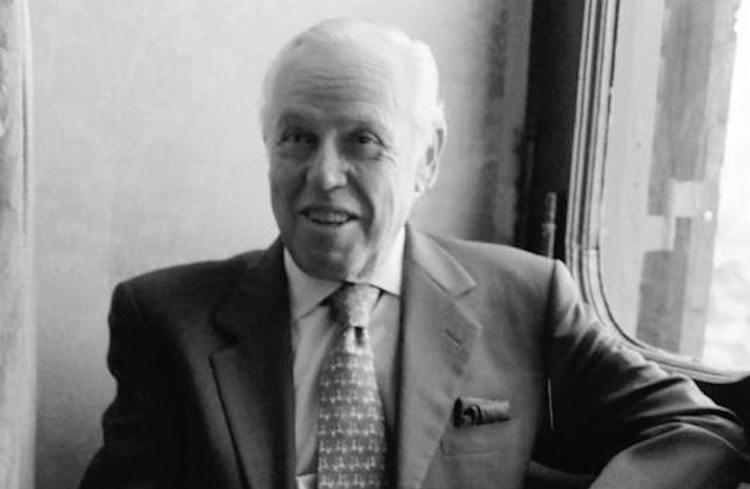
Viewpoint by Roberto Savio*
ROME (IDN | OtherNews) – Polling specialists say that when voters do not feel comfortable in saying how they will really vote, it is because they are not comfortable at a rational level with how they will actually vote. In other words, voters act because of their guts, not because of their brains.
This is what happened when the exit polls after the June 23 British referendum on whether to remain part of or leave the European Union showed the ‘remain’ vote in a slight lead, only to be proved wrong overnight.
The Brexit referendum was really based on gut feelings. It was a campaign of fear. The ‘leave’ campaign was about a massive invasion of Great Britain by Turks because of the possible admission of Turkey to the EU (totally false) and that Great Britain was paying the EU 50 millions pounds a day (again false).
This cry for independence stirred the nationalist nerve of the nostalgists of imperial days. They believed that the nation would face enormous waves of incoming foreigners if Britain remained in the EU, and that they would have no control over their borders. The fact that Britain already had control of its frontiers in agreement with the EU blissfully floated over the tops of their heads.
However, besides this specific trait of the British identity, the reasons for Brexit were common to the xenophobic, nationalist and populist tide which is sweeping across Europe. The Brexit campaign contained all three elements, plus a fourth: the revolt of people against their elites.
What analysts are now finally beginning to grasp is that rational arguments are no longer important – what counts is fear. And anything that smacks of elite and establishment creates an iconoclastic reaction, leading to throwing away the icons of the elite. This is now a new factor in politics all over Europe.
A good example is the Italian city of Turin where, a few days before the Brexit referendum, the honest, efficient and respected outgoing mayor Piero Fassino (who had done a good job) lost to a young lady (representing the 5 Star Movement) without any prior experience. People feel an urge to throw away all that is old, because it has clearly failed to address their needs.
It is too soon to predict a dismembering of the United Kingdom, with Scotland again calling for its independence. Brexit was decided by England, where a considerable number of citizens suddenly felt a reawakening of their identity. It is the same call of Marine Le Pen in France (another lost empire), who has opened a debate about French identity, the need to avoid being diluted by multiculturalism and immigrants (especially if they are Muslim) and regaining control of French borders from the domination of the European Union.
Next year, we have elections in France and Germany. Le Pen heads what is now France’s largest party (the conservative nationalist Front National) and it will be difficult to keep her out of power. The elections in Germany will see a rise of the right-wing populist Alternative for Germany (AfD) party, which makes re-appropriation of German identity and sovereignty the basis for leaving Europe.
Nevertheless, one of the few positive elements of Brexit is that there is now a growing chorus over the fact that globalisation has not kept its promise: wealth for everybody. On the contrary, it has created dramatic social inequality, with few people possessing the bulk of national wealth, and many left out. According to OECD statistics, Europe has lost 18 million middle-class citizens in the last 10 years.
During the run-up to the Brexit referendum, the fact that bankers were unanimously voicing support for the ‘remain’ camp had quite the opposite effect on those 27% of British citizens who have difficulty in reaching the end of the month, while they see over 1.000 bankers, and 1.500 CEOs making more than 1 million pounds a year. Now, even the IMF is publishing studies on how social inequality is a drawback to growth, and the importance of investing in welfare policies of inclusion and equal opportunities.
This is happening, some could say, because reaction to globalisation does not create only right-wing waves. With the feeling that all those in the system are ignoring their problems, new mass movements are coming from the left, like Podemos in Spain. In the forthcoming Spanish elections, the traditional social-democratic party, PSOE, risks being a runner-up to Podemos.
In Italy, after winning provincial elections a few days ago, the 5 Star Movement now looks likely to take over the national government, currently run by the social-democratic Partito Democratico (PD). After two years in power, its leader, the “young” Matteo Renzi, already looks like an old establishment figure.
Perhaps it will also become clear that the EU suffers from the same problem. Everybody talks of its marginal role in the world, of the fact that the unelected bureaucrats in Brussels live detached from reality, and dedicate themselves to discussing rules on how to pack tomatoes, indifferent to the problems of the European citizen. We should pause to reflect that this is the same kind of criticism we hear about the United Nations. But international organisations can only do what their members allow them to do.
The EU is a supranational organisation (the only one in existence), yet all political power is in the hands of the Council of Ministers, where governments sit and take decisions. The European Commission is left to implement them, and the bureaucrats have autonomy to decide the size of packed tomatoes. Then the same national governments that have taken the decisions, find it convenient to denounce EU inefficiency. This irresponsible game now has Brexit as a concrete result, and governments should now think twice about continuing along this path of double standards.
Anyhow, the emperor is now finally naked. Europe is disintegrating and much of the responsibility falls on German shoulders. Germany has been blocking any attempt to create European economic and welfare measures, because it does not want to pay for the mistakes of the debtor countries, such as Greece and Italy. German finance minister Wolfgang Schäuble has even blamed European Central Bank chief Mario Draghi for 50% of the success of the xenophobic AfD in the last German elections. Whatever else might be said, Draghi acts in the interest of Europe, not of the German voter.
Germany is by far the most powerful country in the EU. It is ironic to know that all the important posts in the EU bureaucracy have been taken by Britons and Germans. In fact, those who control the bureaucracy and the debate on packed tomatoes come from those two countries. But it is German Chancellor Angela Merkel who is considered the person running the EU.
Germany now has to decide between continuing on its path to Germanise Europe or return to being a European Germany, as it was when the capital was Bonn. Germany has consistently ignored all European and international calls for playing a different policy in the EU. It has refused to increase spending, to share funding of any initiative on European bonds or any measure of socialisation of the crisis.
But it would be a mistake to think that this is due to the peculiar personality of Schäuble. The large majority of German citizens share the belief that they should not pay for the mistakes of others. To be fair, the German government has never tried to educate them on European needs. And, now, maybe it is too late.
The forthcoming German elections will be difficult for the current government. The AfD is expected to gain a large increase in votes, and the two traditional parties – the Social Democratic Party (SPD) and the Christian Democratic Union (CDU) – are very worried.
In the wake of Brexit, what will Merkel now do? Will she attempt to start a two-speed Europe with the Baltic countries, Poland, Hungary and all other Eurosceptics left out? Or is she ready to change her self-centred policy and play a real European role, in spite of the rise of the AfD? Europe now depends clearly on Germany and it is here that we will see whether Merkel is a stateswoman or just a successful national politician.
* Roberto Savio is publisher of OtherNews, adviser to INPS-IDN and to Global Cooperation Council. He is also co-founder of Inter Press Service (IPS) news agency and its President Emeritus. This article is being published jointly with OtherNews. [IDN-InDepthNews – 25 June 2016]
IDN is flagship of the International Press Syndicate.
Please click here for the writer’s previous IDN articles.
Photo: Roberto Savio. Credit: Christine Sunbean.

